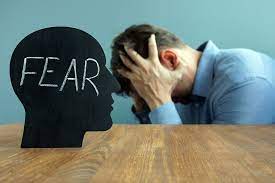
Either through childhood trauma or an event in life that takes hold of your mental, spiritual, and emotional self, post-traumatic stress disorder (PTSD) affects every person differently. It also spreads to family members, coworkers, and friends who do not fully understand how to help. The first step in helping someone with PTSD is understanding what triggers it.
“Post-traumatic stress disorder develops in some people who have experienced a shocking, scary, or dangerous event. It is natural to feel afraid during and after a traumatic situation. Fear triggers many split-second changes in the body to help defend against danger or to avoid it. This ‘fight-or-flight’ response is a typical reaction meant to protect a person from harm.”
The Anxiety and Depression Association of America (ADAA) defines three main symptoms in PTSD patients:
- Re-experiencing the trauma through intrusive distressing recollections of the event, flashbacks, and nightmares;
- Emotional numbness and avoidance of places, people, and activities that are reminders of the trauma; and
- Increased arousal such as difficulty sleeping and concentrating, feeling jumpy, and being easily irritated and angered.
Neuroscientists learned in a recent study the reasoning behind why PTSD patients relive fear memories in their sleep. Although there is hope for a full night’s sleep with PTSD symptoms, Virginia Tech Neuroscientist Sujith Vijayan found that the “sleeping brain can typically bring up emotional memories, process them, and remove their emotional charge.”
Other studies have found that individuals with PTSD have a “faster heart rate while sleeping, indicating an enhanced fight-or-flight response that maintains the body in a permanent state of hypervigilance.”
Next Steps for PTSD
Practicing healthy sleep hygiene is key to reducing these symptoms including heart palpitations. A few elements can include reserving the bedroom for sleep and sex only, keeping a routine at bedtime, avoiding stress prior to bedtime, drawing a lukewarm bath with lavender, and maintaining a healthy diet with exercise.
It is important to note that those suffering from mental illness disorders also try to numb the pain with alcohol or drugs. Doing so will exacerbate PTSD symptoms creating further reach of pain relief for insomnia.
Exercise including yoga, meditation, or running can help unwind your anxiety and release the toxins clogging your mind and body. By pursuing the right mix of physical activity, a short 30 minutes creates the balance needed for a restful night and a clear conscience. If you are already an early bird but struggling with energy, maybe try to start the day with your 30-minute exercise.
For those night owls who struggle with mornings, find a friend at work and walk over the lunch hour or join an exercise class after work.
A common side effect of PTSD is depression which can create suicidal thoughts. If you know of someone who needs help immediately or who has talked about taking their life:
- Reach out to a close friend or loved one.
- Contact a minister, a spiritual leader, or someone in your faith community.
- Call a suicide hotline number — in the United States, call the National Suicide Prevention Lifeline at 1-800-273-TALK (1-800-273-8255) to reach a trained counselor. Use that same number and press 1 to reach the Veterans Crisis Line.
- Make an appointment with your doctor or a mental health professional.
If you are in a pattern of sleepless nights that are negatively affecting your health, your family, or your career, connect with the Alaska Sleep Clinic for a free consultation. Our sleep medicine specialists offer the help needed to get back on track with a quality, healthy night’s sleep.










